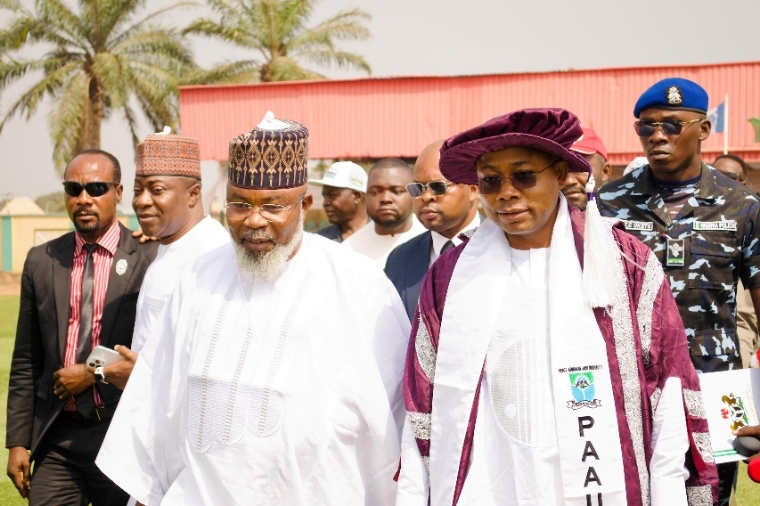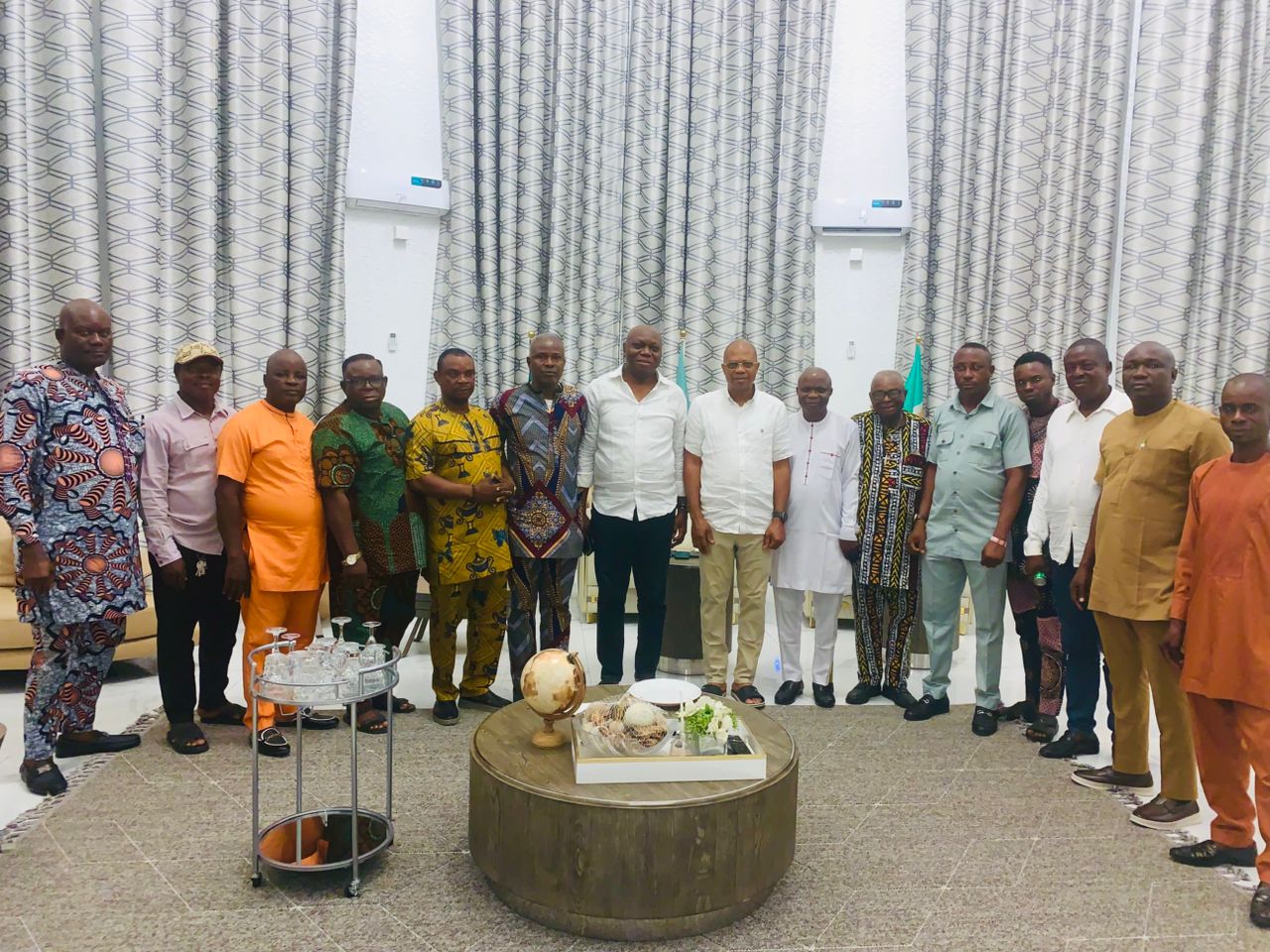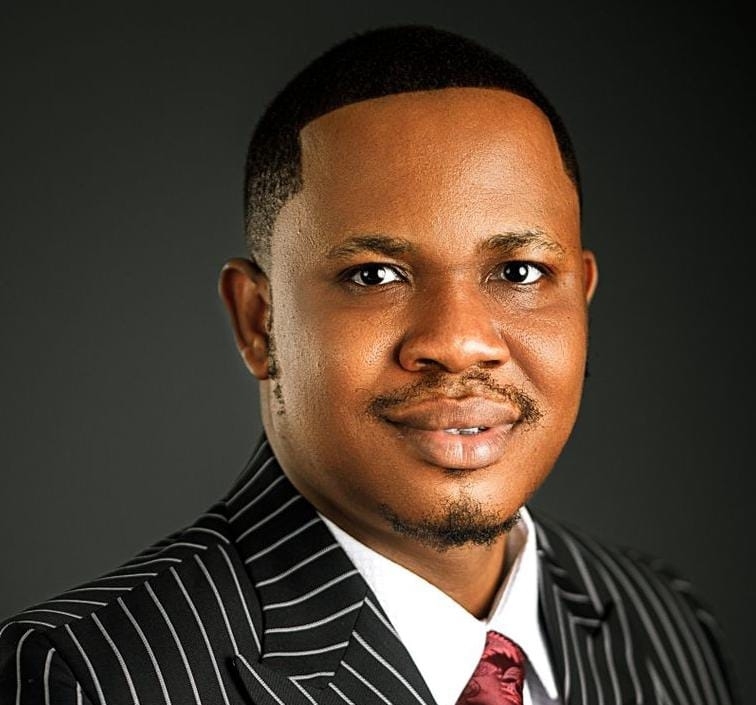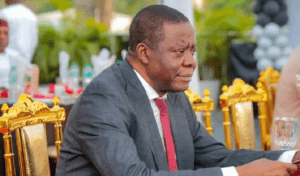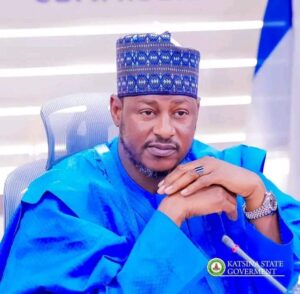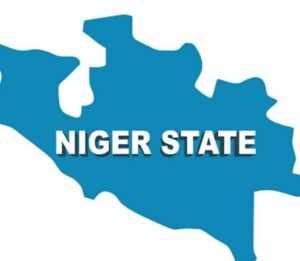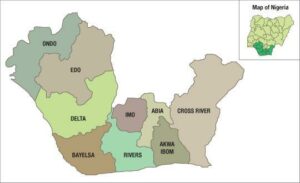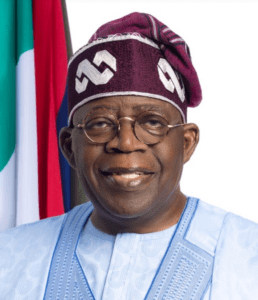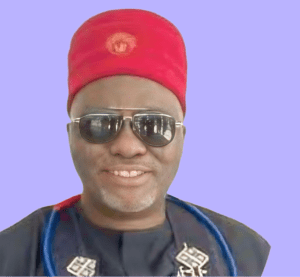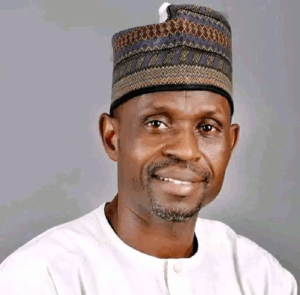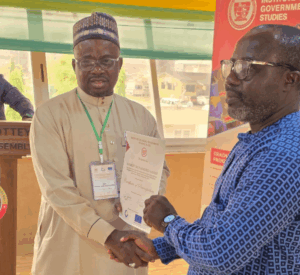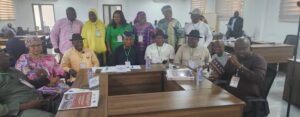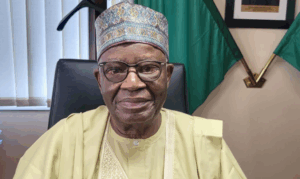Adesina Is Right, the Presidency Is Wrong”: Former OSBC News Director Slams Nigerian Government’s Dismissal of AfDB Chief’s Comments
This post has already been read at least 111193 times!
In a passionate and hard-hitting conversation with journalists, Smolette Adetoyese Shittu-Alamu, former Director of News at the Osun State Broadcasting Corporation (OSBC), has come out forcefully in defense of Dr. Akinwumi Ayodeji Adesina, the globally renowned President of the African Development Bank (AfDB), insisting that Adesina’s recent assessment of Nigeria’s developmental setbacks is accurate — and the presidency’s dismissal of his remarks is “very wrong.”
Dr. Adesina, a respected technocrat, agricultural economist, and former Nigerian Minister of Agriculture and Rural Development, recently commented that Nigerians today are worse off than they were at independence in 1960. His statement triggered sharp reactions from presidential spokesperson Bayo Onanuga, who accused Adesina of making statements based on flawed data and speaking “like a politician.”
But Shittu-Alamu was not having it.
“Adesina is a man of substance, not a reckless talker,” Shittu-Alamu told journalists. “This is a PhD holder from Purdue University, the first-ever First Class graduate of Agricultural Economics from the then University of Ife, now Obafemi Awolowo University, in 1981. He’s a man who has spent his life solving Africa’s most pressing challenges, from poverty to food insecurity. Does the presidency honestly think someone like that would make careless, unverifiable statements?”
Tracing Adesina’s journey from humble beginnings as the son of a poor farmer in Ibadan, through his achievements in international development, Shittu-Alamu described Adesina as “a man who knows what poverty means, who understands what it takes to lift millions out of hunger, and whose policies have transformed agriculture in Nigeria and across Africa.”
As Minister of Agriculture, Adesina’s introduction of the electronic wallet system revolutionized Nigeria’s farming sector, reaching over 15 million farmers, eliminating four decades of fertilizer corruption, and attracting $5.6 billion in private investments.
“These are not the achievements of a man who talks without facts,” Shittu-Alamu emphasized.
Yet, the Nigerian presidency, through Bayo Onanuga, was quick to challenge Adesina’s claims, arguing that “no objective observer can claim that Nigeria has not made progress since 1960” and pointing to the country’s GDP, which they say is now “50 to 100 times larger” than at independence.
But Shittu-Alamu pushed back strongly on this line of argument.
“GDP figures mean little if they don’t translate to better living conditions for the common man,” he said. “If in 1960 a family survived on five or ten naira and today they need five hundred thousand to cover the same expenses, are they richer? Are they better off? Absolutely not!”
He further questioned whether GDP per capita could adequately reflect Nigerians’ access to quality healthcare, education, reliable electricity, jobs, and security.
“We may have more schools and hospitals on paper, but with a population that has jumped from 45 million in 1960 to nearly 230 million today, what good are these facilities when they are overstretched and inaccessible?” Shittu-Alamu asked pointedly. “Isn’t it a tragedy that today, university lecture halls designed for 500 students are crammed with 2,000? That our graduates roam the streets jobless for years before they ‘japa’ abroad?”
He painted a grim picture of the Nigeria of today compared to the past:
“In the 1960s through the 1980s, people could travel safely across the country. We had factories assembling cars, producing brake pads, batteries, tyres. Food was available. Communities cared for each other. Today, insecurity reigns, hunger is widespread, killings are routine, and the average Nigerian is worse off — except those in political power and, of course, the Yahoo-Yahoo boys.”
On the accusation that Adesina was speaking like a politician, Shittu-Alamu retorted:
“It’s insulting. This is a man who runs the African Development Bank, who has access to economic indicators for every country on the continent. Are we saying he doesn’t know what he’s talking about when he speaks of his own country’s decline? Come on, let’s be honest.”
He concluded with a call for the Nigerian presidency to embrace ethical responsibility and self-reflection:
“Ethics demand that public officials refrain from saying things that are wrong or misleading. Our presidential aides must learn to uphold truth and stand by the people they serve. Instead of dismissing hard truths, they should reflect on why such respected voices are sounding the alarm — and act to correct the course.”
The former OSBC news director’s intervention adds to the growing national debate over the state of Nigeria’s progress since independence, particularly at a time when economic hardship, insecurity, and mass emigration continue to shape public discontent.
For many, Shittu-Alamu’s words may resonate deeply: “Dr. Adesina is right. The presidency is wrong. And until our leaders can face that reality, the Nigerian people will continue to suffer under the illusion of progress.”
This post has already been read at least 111193 times!


